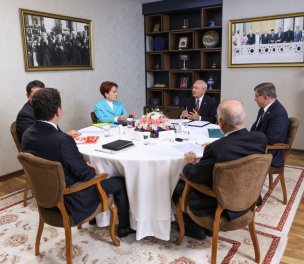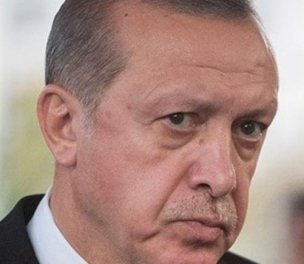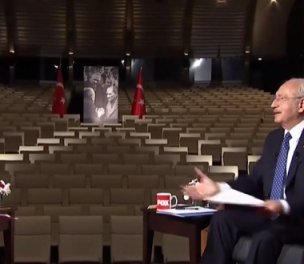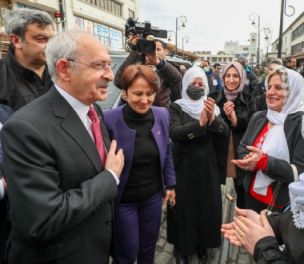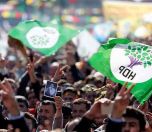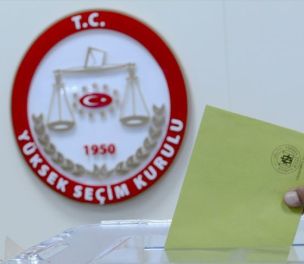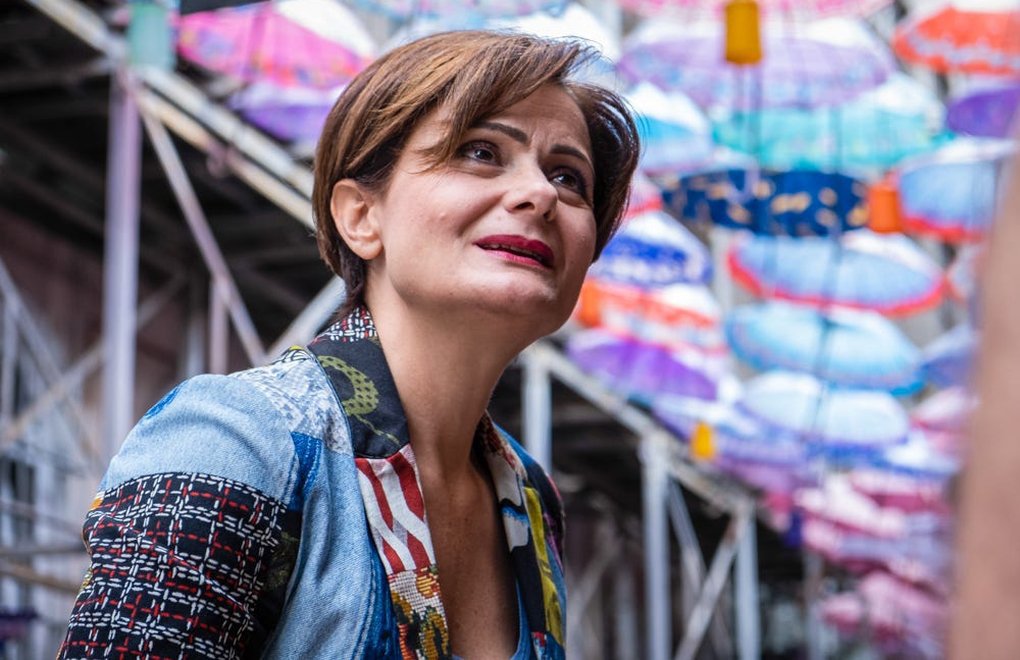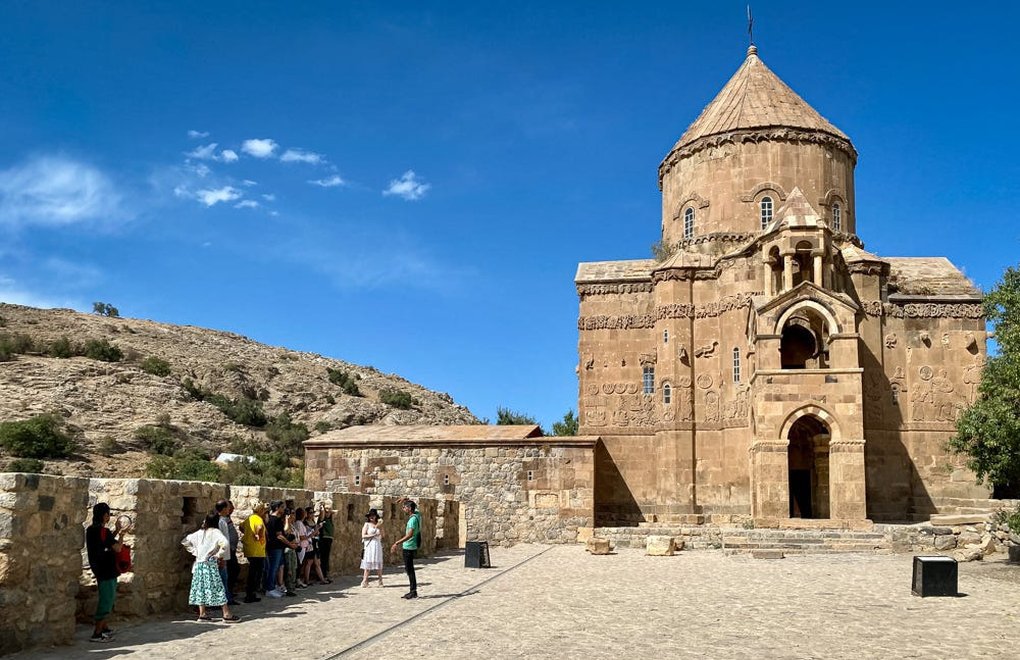Photo: HDP
When İstanbul Mayor Ekrem İmamoğlu won re-run elections on June 23, 2019, he delivered a victory speech saying he'd serve as a unity candidate. "We are here to make peace, to congregate, to reconcile, to talk, to love each other," he said.
More than three years later, Ferhat Encü remains unconvinced. Encü, an İstanbul co-chair for the pro-Kurdish Peoples' Democratic Party (HDP), said he believes İmamoğlu hasn't fulfilled his promises to bridge differences between Türkiye's highly polarized electorate.
Now that İmamoğlu is a potential opposition candidate for next year's presidential elections, Encü expressed doubts that the İstanbul mayor would be the right candidate for HDP supporters, who represented about 12 percent of voters in Türkiye's 2018 elections.
"If the opposition wants to win these elections, it should choose a candidate who will embrace all segments of society and solve its problems," Encü said in an interview with Turkey recap, adding he did not believe nationalist İYİ Party Chair Meral Akşener or Ankara Mayor Mansur Yavaş "would solve any problems."
Encü continued, "And a political figure like İmamoğlu, who presents himself as a leftist but does not break away from the right – who does not even have a political view and commemorates Deniz Gezmiş on the one hand and Alpaslan Türkeş on the other – is not acceptable to us."
"Kingmakers"
Türkiye is preparing for the 2023 elections, which means HDP supporters will be repeatedly labeled as "kingmakers" and "swing voters" due to their key role in tilting elections between President Recep Tayyip Erdoğan's Cumhur İttifakı or the ruling People's Alliance and the opposition bloc, currently known as Altılı Masa or the Table of Six.
While HDP voters are unlikely to support Erdoğan due to his increasingly nationalist policies at home and abroad, their votes are not guaranteed for the opposition candidate, which has yet to be announced. If the opposition candidate is chosen without taking HDP concerns into consideration, the pro-Kurdish party might run a third candidate, which analysts believe could force a second round in next year's vote and complicate prospects for the opposition bloc.
"Although the total opposition has expanded, although we see an opposition of up to 60 percent, this opposition is much more divided than before," said Selim Koru, an analyst at the Ankara-based think-tank Tepav.
Koru added, "The opposition has a shaky majority, which weakens its structure. If the opposition doesn't come out strong in the first round, their margin is narrow."
This June, Erdoğan declared his candidacy for the People's Alliance, which came as no surprise. Prospective presidential candidates for the opposition include Republican People's Party (CHP) members İmamoğlu and Yavaş, as well as party chair Kemal Kılıçdaroğlu. Akşener is also on the list, though she said she wants to serve as prime minister.
According to several polls, neither President Erdoğan nor the opposition candidate will achieve a clear victory without HDP votes in the next year's election. Despite this forecast, HDP vice co-chair Mehmet Tiryaki said the party has yet to hear from the opposition bloc, which it has repeatedly called upon to discuss a joint candidate selection after the HDP unveiled its 11-point declaration on elections last year.
"If the Table of Six wants HDP supporters to vote for their candidate, it is clear that a principled and transparent discussion is needed," Tiryaki said, without mentioning any names for agreeable or disagreeable candidates.
Names or principles?
When asked about Encü's comments on İmamoğlu, Tiryaki reiterated his party's view on not discussing candidates by name but by principles only.
"Of course, there will be names that HDP voters are likely to vote for or will hesitate over. Admittedly, some names may be closer to us, and some may be farther away," Tiryaki said. "But it would be unfair to both our voters and other parties to exclude certain names when the [opposition] candidate has not been determined. We don't want to influence anyone in that way."
For Encü, who joined HDP after losing 11 relatives in the Roboski massacre in 2011, principles also outweigh names. Still, he said there should be some limits, and for him that means excluding Akşener, Yavaş and İmamoğlu from the possible candidates list.
"As HDP, we aren't fighting for a seat or an office. We aim to solve the main problems in this country," Encü said. "The HDP acts with the responsibility of bringing this country to peace and democracy. If a consensus on common principles is to come, we will not discuss names. But that doesn't mean we don't have red lines."
His words are surprising to researcher Reha Ruhavioğlu, who has been working on the Kurdish issue and politics for years. When Turkey recap reached him for comment, his first question was: "Are you sure that Encü mentioned İmamoğlu?"
Ruhavioğlu said it is almost a known fact that HDP won't support Akşener or Yavaş due to their nationalist ties, but Encü's call to shut the door on İmamoğlu is a new development.
"I don't agree with the Encü that the Kurds will not vote for İmamoğlu," Ruhavioğlu said. "They've done it before, and if HDP does not take an opposing stance against him, they will mostly do it again without major hesitation."
In contrast, Koru, from Tepav, said the fact HDP voters supported İmamoğlu in the 2019 elections does not mean they will vote for him again next year, adding the İstanbul mayor benefited from being a new face last time.
"Now, his Karadenizliliği [Black Sea origins] are more apparent," Koru said. "People see that he is actually a construction manager from the Black Sea region. From his favorite journalists to other things, he showed us that he has a different personality than he claimed."
In turn, Ruhavioğlu said he believes all current candidates can receive votes from HDP supporters, but the amount will vary. In the end, he said the party's official stance will hold the most sway over how HDP supporters will vote.
"What matters is what the HDP will tell its voters, what kind of advice it will give in terms of ballot box preferences, and what type of campaign it will run," Ruhavioğlu said. "Everyone should know that no party can overcome the HDP's bond with its supporters."
İYİ Party's move
Journalist Murat Sabuncu, who has been closely following both the CHP and HDP, said the İYİ Party's stance on excluding the HDP from the opposition bloc was having deep effects on HDP voters. This comes at a time when the HDP, the nation's second-largest opposition party in parliament, faces an ongoing closure case.
Sabuncu also criticized Akşener's recent meeting with Sedat Bucak, the leader of one of the largest and most powerful tribes in the Kurdish region with close ties to the state, but he believed Kılıçdaroğlu would try to balance out the different shades of the opposition.
Both Sabuncu and Ruhavioğlu think the opposition candidate is pretty clear after Selahattin Demirtaş' recent interview with Ruşen Çakır. "Demirtaş has already made a point," Sabuncu said. "If Kemal Bey is the joint candidate, Kurds will support him. It is clear now."
"Demirtaş' latest interview has an approach that supports Kılıçdaroğlu and categorically rejects Yavaş," Ruhavioğlu said. "This gives a significant insight into what kind of candidate HDP and its voters expect."
Kılıçdaroğlu's team declined to comment on the issue, but a senior CHP advisor who spoke with Turkey recap on the condition of anonymity said the interpretations from both Sabuncu and Ruhavioğlu were in line with the facts.
Still, Encü defined some recent moves and statements from opposition officials as "upsetting" and added that they are acting "cowardly." Encü underlined it was not realistic to expect a sacrifice from the HDP all the time. "They should also take responsibility," Encü said.
Encü added, "Everyone in this country knows that neither alliance will achieve success without us. While this is clear, one side insists on not giving up on their nationalist and Kemalist views, and the other is actually trying to end us ... If we don't get involved, will the result be our fault?"
For HDP's Tiryaki, the party will push for a joint candidate in line with its principles, but their patience is not endless.
"We won't just nominate a puppet candidate. As HDP, we will get ready for the elections with a real candidate with a winning chance. And we all know what will happen then," Tiryaki continued, implying the HDP would consider running its own candidate, whose name also has yet to be announced. (GK/VK)
This report was produced by Turkey recap with support from the Heinrich Böll Foundation in Turkey and the IPS Communication Foundation.
Click for all Turkey recap articles on bianet





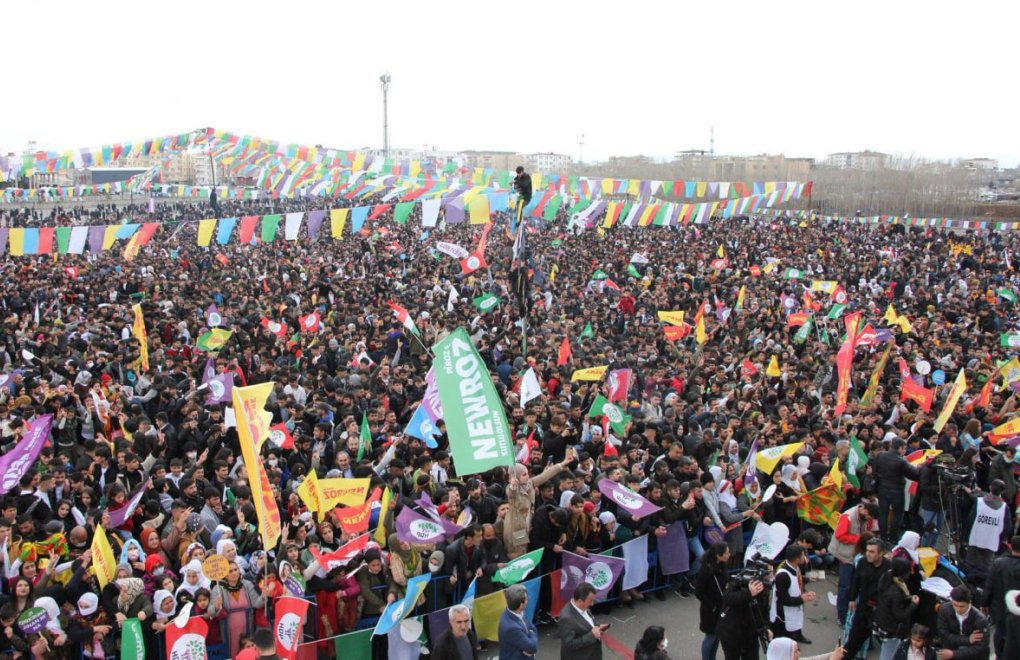
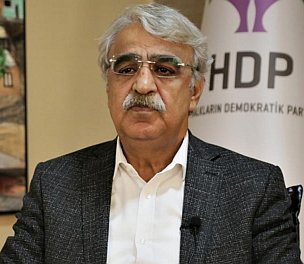

as.jpg)
